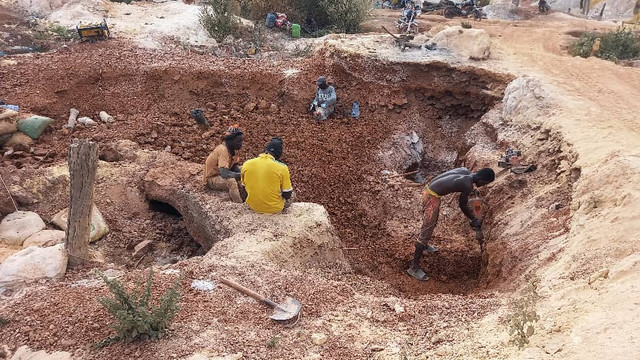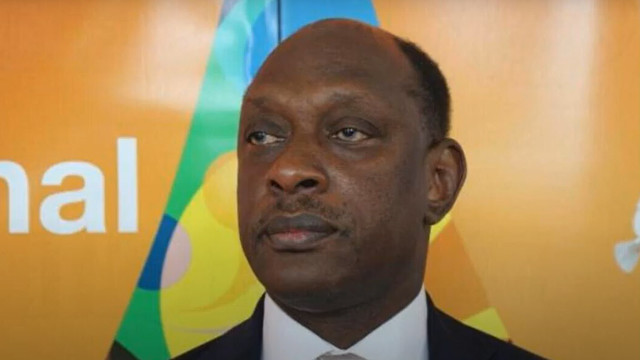Mali election: A Presidential run off
A second round of elections will now have to be held following a “calm” first vote. Challenges to be overcome include poor voter turnout in the north and heavy rains.


Malians vote in the 2013 Presidential elections. Credit: UN photo
Mali's Presidential poll has gone to a second round, as no single candidate gained 50% of the total vote. The results of the first round were announced five days after the vote, the maximum time allowed under the constitution. Former Prime Minister Ibrahim Boubacar Keita, commonly referred to as IBK, and ex-Finance Minister Soumaila Cissé will contest a second round on 11 August.
The elections have won praise from foreign monitors, including the European Union and the International Republican Institute. Catherine Ashton, the EU's foreign policy chief, said the voting had been “calm”. They were the first presidential elections since an army coup to overthrow the government and an ethnic Tuareg uprising in the north, later supported by al Qaeda-linked extremists. An EU-backed French offensive against rebels restored an uneasy order, but foreign donors have insisted on the elections before aid is resumed to Mali.
IBK, 68, a former Prime Minister and head of the Rally for Mali (RPM), which he founded in 2001, has a clear lead, the government has said. Long-time rival Soumaila Cissé, 63, a former Finance Minister, and President of the Commission of the West African Monetary Union (UEMOA) is in second place.
These results won't surprise many, since Cissé and IBK have run against each other before and know each other's form. Last time it was Cissé ahead of IBK.
The largely unknown candidate of the Alliance for Democracy in Mali (Adéma-PASJ) party, Dramane Dembélé, trails in third place. A former mining official, Dembélé was Mali's Director-General of Geology and Mines from 2005 to 2010. Dembélé’s party, Adéma-PASJ, had been the leading political force under Alpha Oumar Konaré, the President of Mali for two terms, after the re-establishment of a democratic system in 1992. But it has since lost much support through splits and charges of complicity with corruption.
Nation divided
While the media have reported few problems with the elections in Mali's south, where about 90% of the nation's population of 15 million live, turn out in the north is a different matter.
With a second round ahead, more needs to be done to increase turnout in the North, especially in Kidal, a small town in northern Mali where voter turnout appeared light amid alleged intimidation Sunday.
The hope of the separatists has been to show up the presidential poll as flawed and thus not legitimate. The northern separatist rebels, the National Movement for the Liberation of Azawad (MNLA) could then argue for a separate state in the north, no longer subject to Bamako, Mali’s capital city located in the south of the country.
Staging election polling in remote northern desert regions is challenging at the best of times, but the elections are also happening at the height of the rainy season. Outside Bamako voter turnout has also been affected by the heavy rains that hit the country in July and August when farmers need to seize every opportunity to sow and weed while there's damp in the soil. It’s also Ramadan, so people are tired by the long days of fasting.
IBK: a firm hand?
IBK has been presented as a strong firm hand, and is known to be the favourite of key constituencies – the army, the French, and the High Council of Islam, the most senior Islamic body in the country.
But while these attributes are seen as assets by some, for others they are grounds for concern. Many argue that the Presidency holds far too much power already and a top priority for the incoming administration will be to get greater accountability and checks on decisions made, by shifting constitutional power to the national assembly. Too close a relationship with the military also rings alarm bells for those who fear a prolonged presence in the wings of power by the 2012 coup leader Captain Amadou Sanogo.
Equally, Mali has remained a firmly secular state under the constitution, so the spread of Islamic influence in the corridors of Koulouba, the Presidential palace, raises serious worries. Finally, being the darling of France, Mali’s former colonial power, is a mixed blessing, despite strong acclaim for the French military in pushing back the jihadist armed groups earlier this year.
IBK played on the fact that Malians felt humiliated by having to call for France's military assistance to prevent a north-south split in their country by running his campaign under the banner of ''For Mali's honour''.
Candidates to look out for
What matters now is how the remainder of the vote is distributed, and how the disappointed candidates will position themselves vis-a-vis the front runners IBK and Cissé. And with a total of 27 candidates (with only 1 woman amongst them), there are many with just a sliver of support to trade. There will be those desperate to play what cards they have for access to office. But others will play a longer game, showing themselves more concerned to maintain some integrity than cut a quick deal.
I would watch Moussa Mara, a 38-year old mayor of a commune in Bamako and a chartered accountant. He’s the head of Yéléma, a political party he set up in 2010; Yéléma means change in Bambara, one of the local languages spoken in the country. Mara is one of the next generation of politicians with a reputation for being an effective mayor and scrupulously honest.
Tiébilé Dramé head of the Party for National Renaissance (Parti pour la renaissance nationale, PARENA) and chief negotiator and peace broker for the Malian government with the MNLA separatist rebels ruled himself out of the race after Mali's top court didn’t respond to his legal request to have the vote delayed. He declared the election was taking place in breach of constitutional provisions, due to the limited preparation of electoral lists and distribution of voter ID cards. But while he has no votes behind him this time, he has numerous supporters amongst both the political classes and donor governments.
This next week offers a good opportunity to push the two finalists to clarify their respective positions, since there is little ideological ground that divides them. What will each promise on constitutional reform, the urgency of national reconciliation and dialogue, getting the army back to barracks, and building a sustainable economy that offers jobs and prospects for all Malians?
Amadou & Mariam sing “Dimanche a Bamako c'est le jour de mariage” – translated roughly as Sunday in Bamako is the day for attending marriages. But you can be sure the mobile networks were buzzing on Sunday with the courtship between front-runners and the rest of the pack.



